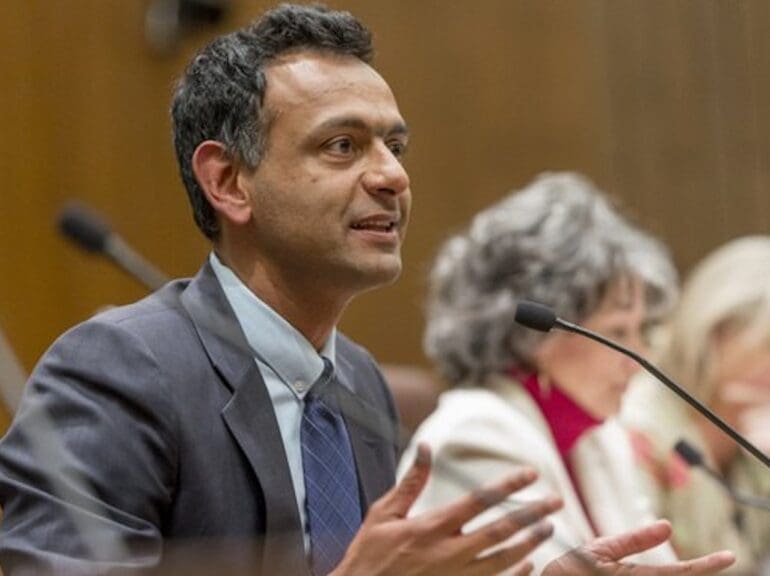In a move that perhaps came as no surprise, the SEC followed up their complaint against Binance with another against Coinbase. This one was nowhere near as spicy.
In late March 2023, the SEC issued a Wells notice to Coinbase alleging possible violations of securities law. While Coinbase maintained at the time that the allegations were vague and gave little to respond to, the escalation was expected.
The company stated that the Wells notice had come after months of stonewalling from the SEC and that Coinbase had “provided multiple proposals to the SEC about registration over the course of months, all of which the SEC ultimately refused to respond to.”
The filing from June 6, 2023, stated that Coinbase, a US-based crypto-exchange that registered as a public company in April 2021, had not registered as a broker, securities exchange, or clearing agency with the SEC.
The announcement came just hours before Coinbase’s Chief Legal Officer, Paul Grewal, was scheduled to testify before the US House Committee on Agriculture about the need for clarity in the US regulation of crypto.
“It’s disappointing, but not surprising, that the SEC has decided to bring legal action against Coinbase today, the day of our testimony before this committee’s critical hearing on creating a workable framework for digital asset regulation,” said Grewal during the hearing. “The solution is legislation that allows fair rules for the road to be developed transparently and applied equally, not litigation.”
RELATED: Enforcement in lieu of regulation: Coinbase faces the SEC
A Legacy of Ambiguity
The case against Coinbase is a big one for the crypto industry, and its results could define the existence of digital assets in the US.
Unlike others in the space, Coinbase had been a stickler for regulation in the US.
The company stated that in early 2022, the SEC had approached Coinbase asking if they would be interested in registering some portion of the business, to which the company agreed. Despite there not being an existing path for crypto exchanges to register, the regulators and Coinbase embarked on a resolution.

“We developed and proposed two different registration models,” wrote the company. “We spent millions of dollars on legal support to build these proposals and repeatedly asked for the SEC’s feedback. We got none. We also reiterated that we stand by our listings process – we don’t list securities today – and repeatedly invited the SEC to raise any questions about any asset at all on our platform. They raised none.”
“We met with the SEC more than 30 times over nine months, but we were doing all of the talking. In December 2022, we asked the SEC again for some feedback on our proposals. The SEC staff agreed to provide feedback in January 2023. In January, the day before our scheduled meeting, the SEC canceled on us and told us they would be shifting back to an enforcement investigation.”
They are not the only exchanges in the space to receive this treatment. Crypto exchange Bittrex Global faced its own charges in April 2023. In response, they, too, complained of the lack of clarity and communication from regulators.
“We never had an opportunity to speak to them,” said Oliver Linch of Bittrex Global. “The very first contact we have with them whatsoever was when they issued us this Wells Notice. That normally comes at the end of a long dialogue. This was the very first contact we had- the moments when they censor stuff. We asked them for a reasonable amount of time to respond, and they basically said they weren’t interested.
The US-based entity, Bittrex US, closed its operations later that month.
Working toward legislation
In addition, Coinbase has publicly engaged in efforts to create clarity in the digital asset space. The latest of these was in response to the Digital Assets Market Structure Discussion Draft.
The discussion draft was released on June 2 as a “first step…to develop clear rules of the road for the digital asset ecosystem.” It builds on existing regulatory frameworks while attempting to facilitate the inclusion of properties unique to digital assets.
Grewal stated in opening remarks to the hearing that touched on the bill that “The bill would establish a strong foundation to ensure robust protections for consumers, investors, and market participants engaged in crypto.”
“Coinbase strongly encourages lawmakers from both sides of the aisle to work together and act as soon as possible to continue moving the bill through the legislative process.”
It also outlines a framework for the CFTC and the SEC to work together in digital asset regulation, an adjustment that many in the community welcome.
“Gensler is an academic that is trying to execute,” said Simon Grunfeld, Head of Web3 at Digital Bank, Cogni. “He’s not finding solutions to problems. He’s not working with companies because he’s not doing anything to try to remedy things…The new bill could change everything.”
However, a key area that will have to be resolved in the aftermath of the SEC’s announcement is whether Coinbase will be granted its petition for rulemaking. If denied, the regulators will have to explain their reasoning.
Solidifying allegations on cryptocurrencies as securities
A large part of the complaint against Coinbase also explains, in great detail, the classification as securities of certain cryptocurrencies listed on the exchange.
In a dry, copy-and-paste job from the Binance complaint, SEC Chairman Gary Gensler and his cronies made good on his bumbling remark in April that “all cryptocurrencies are securities”. Including some of the biggest coins in the ecosystem, both filings went into great detail as to why the likes of Solana, Cardano, and Polygon were all securities.
The gaping hole that many in the community are expecting to be woven in soon is ethereum.
RELATED: A tale of two regulators – EU MiCA bill
While many believe that Coinbase has a good chance of winning in the case against them, its filing brings an abundance of issues in US crypto regulation to light. Regardless of the outcome, the process will shape the course of the digital asset industry within the USA.
The classification of these cryptocurrencies offered by the majority of exchanges is likely to cause a chain reaction that has already been reflected in their trading. With two of the largest exchanges facing charges in the same week, the crypto community waits to see who is next in the firing line.


